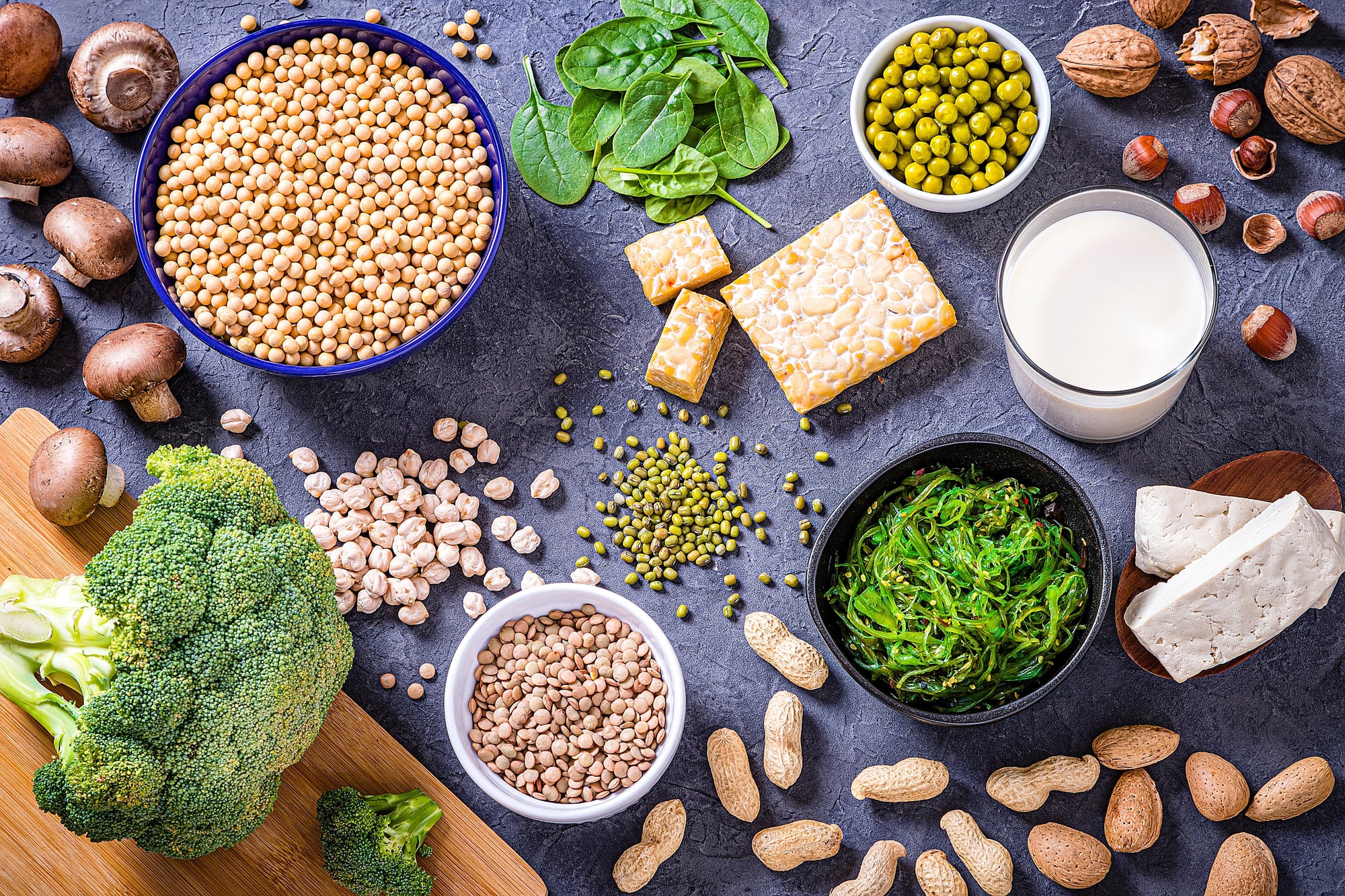

15 high protein sources for vegetarians and vegans
Fulfilling your daily protein needs as a vegetarian or vegan can seem like a daunting task.
80%+ Indians are protein deficient and are largely vegetarian or vegan, hence knowing the right sources of protein to add to your diet can be really useful to meet your daily needs
Before we dive in, it’s important to understand complete and incomplete sources of protein since a few vegetarian protein sources lack sufficient amounts of the essential amino acid lysine or methionine.
Complete Protein
Is one that contains all nine essential amino acids in sufficient quantities. These amino acids cannot be synthesised by the human body and must be obtained through diet.
Incomplete Protein
These lack one or more of the nine essential amino acids in sufficient quantities. These proteins still contribute valuable nutrients but need to be paired with other protein sources to make up for the missing amino acids
We've suggested the complementary pairings for incomplete protein sources below
List of 15 high protein vegetarian and vegan sources
Please note that the Protein, Calories, and Fiber values are provided per 100 gm uncooked food item. Protein and Fiber quantities are in grams in all images.
#1 Quinoa
Quinoa is a complete protein source and is also rich in manganese, phosphorus, magnesium, and folate (Vit B9). Packed with 14 g of protein and 7 g of fiber quinoa can be an excellent add on to your salads and to balance your overall meal.

#2 Tofu
Tofu is a complete protein source and is rich in calcium and iron. It’s a great option if you are trying to lose weight and want to keep your protein intake high while keeping your calories on the lower side

#3 Tempeh
This new kid on the block is a complete protein and is rich in magnesium, iron, and riboflavin (Vit B2). Tempeh is a traditional Indonesian food made from soybeans that have been fermented, or broken down by microorganisms.

This brand is a good option to buy tempeh from - Hello Tempayy
#4 Amaranth
This ancient grain is a complete protein source and is rich in manganese, magnesium, phosphorus, and iron.

#5 Greek Yogurt
A dairy based complete source of protein that’s extremely versatile and convenient to consume as a snack, lunch/dinner add on or a dessert. It’s rich in Calcium and is a great low calorie high protein vegetarian option

#6 Paneer
A dairy based complete protein source rich in calcium. In case you are cutting down on calories, you can opt in for low fat paneer options or swap paneer with tofu.

#7 Chickpeas
Chickpeas are high in fiber and are rich in folate (Vit B9), manganese, iron, copper. They are not a complete source of protein and lack in the amino acid methionine. You can pair chickpeas with rice or whole wheat to get all 9 essential amino acids
#8 Soybean
A complete protein source and a higher protein source compared a lot of other vegan sources. They are rich in manganese, phosphorus, iron, folate (vit B9), magnesium, and zinc.
Soy does have a high concentration of isoflavones, a type of plant estrogen (phytoestrogen) that is similar in function to human estrogen but with much weaker effects. So no, it won’t make you feminine.

#9 Lentils
Lentils can be paired with rice, whole wheat, or millets to make them a complete protein source. They are packed with vitamins and minerals such as folate (Vit B9), iron, manganese, copper.

#10 Kidney Beans
Kidney beans are rich in fiber and folate (Vit B9), manganese, iron, potassium and phosphorus. They are not a complete source of protein and lack in the amino acid methionine. You can pair them with rice or whole wheat to make them a complete protein source.

#11 Green Gram or Mung
Mung is not a complete protein source but can be paired with whole wheat, rice, or millets to make them complete. They’re rich in iron, magnesium, vit B6, folate, manganese and sprouting them can increase their protein content by up to 30%!

#12 Almonds
Nuts can be a great way to sneak in some extra protein in your day. Almonds aren’t a complete source of protein as they lack lysine but can be paired with chia seeds or yogurt to complement. They are rich in Vit E, magnesium, manganese, Vit B2.

#13 Peanuts
You can pair them with poha, rice or peanut butter with whole wheat bread to make them complete. Peanuts are rich in niacin, folate, manganese, and copper.

#14 Chia Seeds
They are a complete source of protein and can be added to your smoothies or make a chia pudding or simply soak them in water or coconut water. They are very rich in fiber, making them an excellent choice to fulfil your daily fiber needs.

#15 Whey or Plant Protein Powder/Milkshakes
No, these aren’t steroids or unnatural. They are extracted from milk or plant sources (pea, rice) and if you’re someone like me who has a busy schedule and cannot eat a lot of food, protein milkshakes or powders can be an excellent choice.
They are high protein low calorie options which are also great if you’re trying to lose weight and maintain your overall calorie intake

A summarised view of all the sources

Protein is an essential nutrient that’s required for almost every body function and is the building block of our bodies. Prioritise protein in every meal and choose a wide variety of sources from the list above.
Tell us your biggest barrier in meeting your daily protein intake in the comments. We’d be happy to help.

